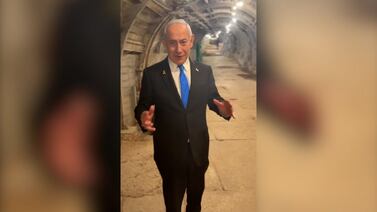The “intelligent age” being touted at the Annual Meeting of the World Economic Forum this week is being met with very immediate challenges – political polarisation and increasingly nationalist political agendas.
With decades-long crises like the occupation of Palestine and wealth inequality, the intelligent age should present solutions, but the fear is that it will widen the disparity.
The Davos meeting was in full swing on Tuesday. In his opening address, WEF president Borge Brende reminded participants that “we can only address challenges together … we need to find more effective ways for working together”.
And while one of the themes this year is “developing pathways for greater co-operation”, WEF chairman Klaus Schwab acknowledged that the world is “in search of a new balance between global needs and national interests”. National and corporate interests are both challenging that need, particularly when it comes to inequality.
Microsoft’s president of research Peter Lee gave a refreshingly honest and open answer as to why AI applications for healthcare diagnosis are not applied on mass scale, stating in a session that “business expectations” are not aligned.
That lack of alignment is in reference to a focus on prioritising revenue generation.
And yet there are incredible opportunities presented by technological advancements, including in health care and scientific development, which Mr Lee said would include “learning nature’s language” and knowing more about its capacities.
Mr Schwab spoke of a “new renaissance with advancements in technology, health, culture and more”.
Yet the renaissance is also met with fears from many that the speed of change may leave them behind. Mohamed Kande, PwC’s global chairman, addressed this challenge by saying access to technology across countries and societies, in addition to upskilling workforces, will change the way work and society is organised.
Meanwhile, Qatar’s Prime Minister Sheikh Mohammed bin Abdulrahman took part in two public sessions on Tuesday, talking about the success of mediation in reaching a Gaza ceasefire, and collaboration between different mediators and actors.
“We feel sorry for the time wasted” getting to the ceasefire, saying the agreement was the same as what had been proposed in December 2023. He stressed the importance to avoid wasting further time.
The appeal to avoid wasting time that can affect lives directly – from the Middle East to global co-operation to tackle climate change – is one that leaders at the World Economic Forum would do well to heed.





